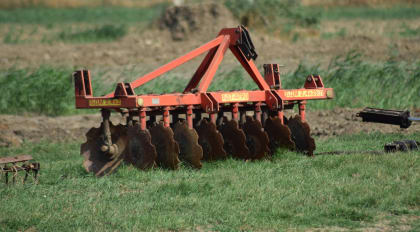Data & WIS, decision-making tools: OiEau's innovative approach

Paul HAENER, Engineer in Water Sciences and Techniques, has been in charge of Water Information Systems (WIS) projects, developed internationally by OiEau, for more than 30 years.
He presents the approach of our general interest association, as regards data, production and sharing of knowledge, real decision-making tool.
What are the characteristics of OiEau's approach to the creation of WIS?
One of the main characteristics of OiEau's actions, and this is our great difference with many EIS projects carried out by other organizations, is that we do not intervene only to set up a tool!
Our strength is that we come with a cooperative and capacity building approach. Our aim is to help our partners to develop a long-term vision by developing inter-institutional cooperation, building on each partner's existing skills, procedures and systems, in a win/win situation.
Our status as a public utility association contributes to this.
We are not seen by the partners as consultants who just come to install or sell an WIS, but as an organisation that comes to accompany them. This helps them to collaborate and to open doors to us more easily, in terms of access to information.
In this context, the awareness-raising actions carried out upstream by INBO are also very important and facilitate our contacts. Indeed, this platform for exchanging knowledge and experienceis made up of 192 Member-Organizations (basin organizations, governmental administrations in charge of water, bi or multilateral cooperation organizations) and Permanent Observers from 88 countries.
Its missions include supporting initiatives for the organisation of Integrated Water Resources Management (IWRM) at basin level, to reconcile economic growth, social justice, protection of the environment and water resources, and participation of civil society, as well as supporting the development of IWRM.
It is important to underline that our actions on IWRM are often inserted in OiEau's Integrated Water Resources Management (IWRM) projects.
They are to be considered as a fundamental instrument for the implementation of water policies. IWRM cannot be achieved without data, and lack of access to data sometimes leads to significant economic losses.
It happens regularly that we can set up pilot actions on IWRM projects, and that our interlocutors realise that they have an important need to reinforce the management and sharing of data between institutions.
Our logic is not to centralise data, but rather to network the actors who produce data so that they end up sharing their information, while building on their existing information systems. This is a guarantee of the sustainability of sharing. Indeed, when a centralised IS is created, once the product is finished, there is no more cooperation. This creates frustration among the actors who have provided data because they sometimes do not get any feedback. Conversely, one of the key points of OiEau's methodology in terms of support is the strengthening of the workings between stakeholders.
This methodology applies at both national and international levels. Our idea is to strengthen each national system to facilitate its integration at the international level. This same logic can also be applied between the territorial or basin level and the national level!
We are currently working on about ten projects in connection with about twenty countries. The projects last between 6 months and 3 years and we deal with different issues.
Organising access to information on water is not only useful for planning and managing water resources, or for organising drinking water supply, but also for many other issues such as irrigation, energy, adaptation to climate change, risk management, floods and droughts...
All this requires easily accessible, quality-controlled and regularly updated data!
What is the origin of this specific approach of the OiEau?
From 1993, OiEau contributed to the implementation of the National Water Data Network (RNDE) and the National Administration Service for Water Data and Reference Systems (SANDRE) in France.
The French water management stakeholders had become aware of the difficulty of correctly managing water resources when access to data is not efficiently organised.
The Ministry and the 6 Water Agencies then decided to create RNDE (precursor of the current WIS) by relying on OiEau in order to organise the network of partnerships and to co-ordinate the technical aspects, in particular via the SANDRE.
The logic of OiEau within RNDE was to be the leader of the dialogue between the water stakeholders and to play a technical assistance role, so that the data produced by each one could be accessible and used for basin management, on a regional and national scale.
We then quickly noted that the problem that OiEau dealt with in France, through RNDE/SANDRE, concerned in fact all the countries!
Whatever the country, efficient water resource management implies having data, not only on water resources, on quantity, quality, surface and ground water, but also on infrastructures, users and uses.
Several ministries are always involved and multiple actors are systematically involved at various local, basin, national and international levels. In the end, this constitutes a puzzle in which everyone has part of the necessary data, and manages it in their own way.
We have therefore endeavoured to take up the logic of RNDE(SIE)/SANDRE by adapting it to the contexts encountered at international level.
The main difference is that since the 1990s, RNDE/Sandre and then EIS/SANDRE funding by the Ministry and the French Biodiversity Office (OFB) has been recurrent and driven by a ministerial desire to organise all this.
On the other hand, in developing countries, this will and awareness are more rare, resources are limited, and actions are often planned within the framework of short-term projects.
In the last 5 to 10 years or so, decision-makers have become more aware of the need to organise data management. In most countries, there is a real difficulty in developing a strategy, as for example in France, with the implementation of the National Water Data Scheme in which several ministries are involved.
Our challenge is therefore often to succeed in demonstrating in the short term the interest of pooling, of putting the players around the table, to ensure that they share information, in particular by seeking win-win agreements with a view to sustainable actions, all with visible and useful results.
Let's not forget that this strategy took more than 20 years to build in France!
How does OiEau manage to convince people of the need to share data, when the operational and awareness proces can be so long?t de prise de conscience peut être long ?
OiEau has a role of technical assistance and demonstrator.
We must have short-term results so that our interlocutors can become aware of the interest of data sharing. What interests them is to have a visual, concrete demonstration of the added value of organising integrated and shared data management that is useful for decision-making and public information.
As the projects progressed, we developed a methodology combining organisational and technical support, with procedures and tools.
One of the first steps when starting a project in a new geographical area is often to take stock of the situation by analysing who is doing what, what form the existing data takes, and what needs we will be able to show concrete things about.
We are then often led to set up platforms that facilitate the integration and cross-fertilisation of available data, directly linked to the information systems of data producers. This is done without the partners having to change their methodology or their own information systems.
Indeed, one cannot impose, nor expect them to provide their data in a common format.
Projects are too short in duration, common national reference systems and language elements often do not exist and the organisations involved do not usually have the human and material resources to adapt their systems and procedures.
We make the partners aware of the need for common reference systems and common language elements such as SANDRE.
In practice, we are often obliged to connect to data sources that are not harmonised at the outset, and to apply automatic homogenisation processes "on the fly" when integrating the data into the platform.
This is done through correspondence tables that take into account the concepts and codes used by the various producers.
It is also important to leave the responsibility for data management at the level of each data producer. This leads us to develop interoperability and automatic integration processes between the partners' information systems and the integration platform, through web services and APIs. This allows access to data regularly updated by producers.
Once integrated into the platform, beneficiaries can then cross-reference data, identify inconsistencies and strengthen quality control procedures, while the data can be used in various forms: dynamic maps and dashboards, reports, newsletters, links with modelling tools, for example.
Finally, it should be noted that more and more satellite data are being integrated, whether for quantitative monitoring (spatial altimetry), water quality or monitoring of uses.
We are therefore moving from a situation where data is dispersed, not homogeneous and not widely shared, to data managed and made accessible by national data producers.
These direct connections to the national databases allow the latest updates made by the producers to be viewed automatically!

Download for free
The "Handbook on water information systems: administration, processing and operation" published by INBO in partnership with UNESCO.




